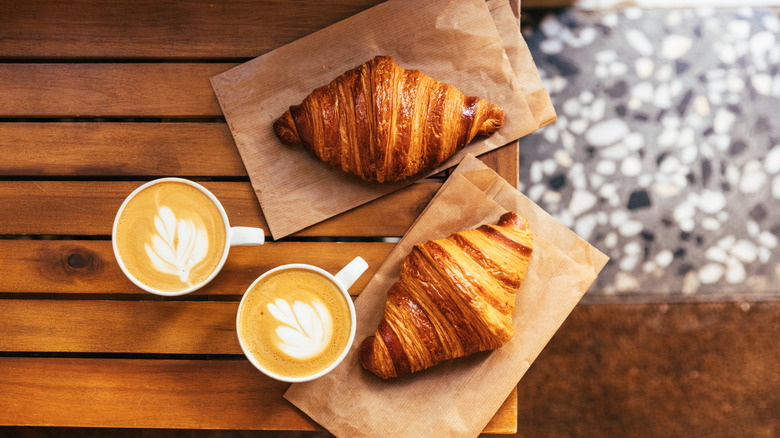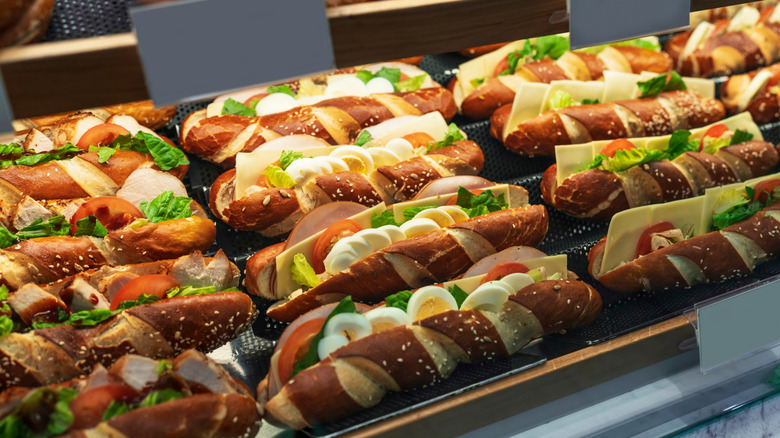Why Coffee Shops Often Don't Make Their Pastries In House
If you've ever wondered where your favorite coffee shop gets its delicious baked goods, you're not alone. It's common for coffee shops to outsource their baking. After all, even Starbucks uses another company to make its cake pops. Food Republic spoke to Arda Barlas, owner of Boxx Coffee, who shared that there's a specific reason why your favorite coffee shop doesn't make its own baked goods. In terms of coffee and baked goods, he said, "These are two different products, so they require two different approaches. Sandwiches can be, and often are, prepared in-house. Pastries, on the other hand, are usually sourced from outside partners."
Whether making something relatively simple, like chewy pumpkin chocolate chip cookies, or a laminated dough dish that's one of the hardest dishes to make from scratch, Barlas said, "Baking in-house comes with its own set of challenges." For starters, coffee shop owners must pay attention to the cost of ingredients and waste, as well as how these factors will impact the bottom line (e.g., if it will cost more to bake in-house). There's also the question of space. "You need room for mixing, kneading, rolling dough, as well as trays, ovens, resting racks, and designated prep stations," explained Barlas. This kind of extra space is something many coffee businesses lack.
On top of that, you need to have a team that can not only make coffee well but also has the technical prowess to execute great pastries consistently. Many coffee shop owners, like Barlas, opt to collaborate with outside vendors whose primary focus is on baked goods. "We trust them to do what they do best, which gives us the time and space to focus on what we do best, serving great coffee," Barlas said.
Coffee shops are more likely to make sandwiches in-house
While many coffee shops choose to outsource their baked goods, there's something that's often made in-house: sandwiches. "At Boxx, we choose not to offer them because we want our bar team focused solely on coffee. But with one or two induction stoves and a griddle, most sandwiches can be made on-site," Arda Barlas explained. He added, "While that setup does require some space, the impact is usually manageable."
While sandwiches are easier to make on-site, Barlas noted that food waste remains a concern. "Aside from some deli meats, most sandwich ingredients have not only a shelf life but also a short peak freshness window when the quality is at its best," he said. If a coffee shop isn't highly accurate with its ingredient purchases, it can result in significant food waste and a loss of revenue.
The same applies to pastries and baked goods. Failed bakes, wasted ingredients, and extra staff hours all contribute to increased costs. A supplier baking in bulk is less likely to have these issues, and most importantly, they know what they're doing. While it would be nice if everything you bite into at your local coffee shop were made in-house, for many coffee shop owners, it makes more sense financially and logistically to have someone else make food and baked goods.


